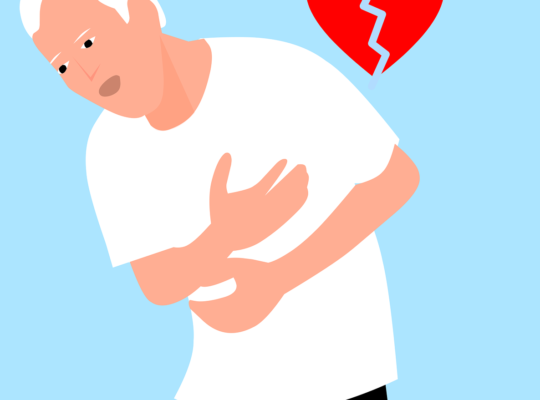
Ultra-processed foods now make up a significant portion of our daily meals. Studies show that they are linked to over 30 chronic health conditions, alarming a growing number of health experts. These foods often contain unhealthy additives and are stripped of nutrients, leading to various health risks. This article aims to assist you in recognizing ultra-processed foods and provide effective strategies to avoid them and enhance your health.
What are Ultra-Processed Foods?
Defining Ultra-Processed Foods:
The NOVA food classification system categorizes foods into four groups based on their processing level. Understanding these categories can help you make better food choices:
- Unprocessed or minimally processed foods: Fresh fruits, vegetables, grains, and meats.
- Processed culinary ingredients: Oils, butter, sugar, and salt.
- Processed foods: Cheese, bread, and canned vegetables, which contain salt or sugar.
- Ultra-processed foods: Ready-to-eat meals, sugary drinks, snacks, and other items high in additives.
Ingredients to Watch Out For:
Common ingredients to avoid in ultra-processed foods include:
- High-fructose corn syrup
- Artificial flavors and colors
- Emulsifiers
- Preservatives like BHT and BHA
Look for these on food labels.
The Problem with Additives:
Many food additives can pose health risks. For example, some artificial sweeteners are linked to metabolic issues and digestive problems. Research has shown that these additives may disrupt our gut health and lead to conditions like obesity.
30+ Health Conditions Linked to Ultra-Processed Food Consumption
Cardiovascular Diseases:
Ultra-processed foods have been linked to heart disease, stroke, and high blood pressure. A study published in the British Medical Journal revealed that for every 10% increase in ultra-processed food consumption, the risk of heart disease rises significantly.
Type 2 Diabetes:
These foods are often high in sugar, refined carbohydrates, and unhealthy fats, which contribute to insulin resistance. The Journal of Nutrition reported that people consuming more ultra-processed foods are at a higher risk for developing type 2 diabetes.
Metabolic Syndrome:
Regular consumption is strongly associated with metabolic syndrome. This includes a mix of obesity, high blood pressure, and elevated cholesterol levels. Studies have shown that those who eat more ultra-processed foods often suffer from these conditions.
Cancer:
Research indicates potential links between ultra-processed foods and certain types of cancer. For instance, processed meats have been classified as carcinogenic by the World Health Organization.
Mental Health:
Emerging studies hint at a connection between ultra-processed food intake and mental health issues like anxiety and depression. This connection is attributed to the negative impact these foods have on brain health.
Identifying Ultra-Processed Foods in Your Diet
Reading Food Labels:
Properly reading labels is crucial. Here’s how:
- Check the ingredient list: Look for long lists with ingredients you can’t pronounce.
- Identify unhealthy additives: Note any artificial flavors, colors, and preservatives.
- Evaluate sugar content: Excessive sugar and unhealthy fats are telltale signs.
Recognizing Marketing Tactics:
Be aware of misleading labels. Terms like “healthy,” “natural,” or “sugar-free” are often used to lure consumers. For example, a product might be labeled “low-fat,” but it can be loaded with sugar.
Commonly Misunderstood Foods:
Many people think granola bars, flavored yogurt, and certain cereals are healthy. However, these often fall into the ultra-processed category due to added sugars and preservatives.
Strategies for Reducing Ultra-Processed Food Consumption
Meal Planning and Preparation:
Taking control of your meals can help reduce processed food intake. Create a weekly meal plan and prepare meals at home using whole ingredients.
Smart Grocery Shopping:
When grocery shopping:
- Stick to the outer aisles where fresh produce and meats are usually located.
- Carry a shopping list that focuses on whole foods.
- Avoid shopping when hungry to reduce impulse buys.
Gradual Substitution:
Start by slowly replacing ultra-processed foods with healthier options. If you love chips, try air-popped popcorn or whole-grain crackers instead.
Healthy Alternatives to Ultra-Processed Foods
Whole Grains vs. Refined Grains:
Whole grains like brown rice and quinoa offer more nutrients and fiber compared to refined grains like white rice and bread. This lower glycemic index helps in better blood sugar control.
Fresh Produce vs. Processed Snacks:
Choose fresh fruits and vegetables over chips and candy. For instance, apple slices with almond butter make a great snack that is infinitely healthier than a candy bar.
Lean Protein vs. Processed Meats:
Opt for lean protein sources like chicken, fish, or beans instead of processed meats like sausages or deli slices. These options are generally lower in unhealthy fats and preservatives.
Conclusion
Ultra-processed foods are linked to numerous health risks, including heart disease, diabetes, and mental health concerns. Understanding food labels and being critical of marketing tactics is crucial in making informed decisions. Gradually reduce your intake of these foods and focus on whole, nutrient-rich options for a healthier lifestyle. For more information on healthy eating, visit ChooseMyPlate.gov.







